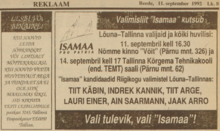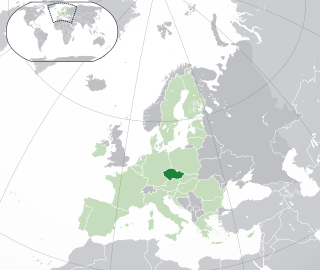
Lesbian, gay, bisexual, and transgender (LGBT) people in the Czech Republic are granted some protections, but may still face legal difficulties not experienced by non-LGBT residents. In 2006, the country legalized registered partnerships for same-sex couples, and a bill legalizing same-sex marriage was being considered by the Parliament of the Czech Republic before its dissolution for the 2021 Czech legislative election, when it died in the committee stage.
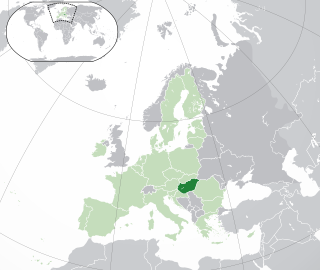
Lesbian, gay, bisexual, and transgender (LGBTQ) people in Hungary face legal and social challenges not experienced by non-LGBT residents. Homosexuality is legal in Hungary for both men and women. Discrimination on the basis of sexual orientation and sex is banned in the country. However, households headed by same-sex couples are not eligible for all of the same legal rights available to heterosexual married couples. Registered partnership for same-sex couples was legalised in 2009, but same-sex marriage remains banned. The Hungarian government has passed legislation that restricts the civil rights of LGBT Hungarians – such as ending legal recognition of transgender Hungarians and banning LGBT content and displays for minors. This trend continues under the Fidesz government of Viktor Orbán. In June 2021, Hungary passed an anti-LGBT law on banning "homosexual and transexual propaganda" effective since 1 July. The law has been condemned by seventeen member states of the European Union. In July 2020, the European Commission started legal action against Hungary and Poland for violations of fundamental rights of LGBTQI people, stating: "Europe will never allow parts of our society to be stigmatized."

Lesbian, gay, bisexual, and transgender (LGBT) people in Bulgaria face significant challenges not experienced by non-LGBT residents. Both male and female same-sex relationships are legal in Bulgaria, but same-sex couples and households headed by same-sex couples are not eligible for the same legal protections available to opposite-sex couples. Discrimination on the basis of sexual orientation has been banned since 2004, with discrimination based on "gender change" being outlawed since 2015. In July 2019, a Bulgarian court recognized a same-sex marriage performed in France in a landmark ruling. For 2020, Bulgaria was ranked 37 of 49 European countries for LGBT rights protection by ILGA-Europe. Like most countries in Central and Eastern Europe, post-Communist Bulgaria holds socially conservative attitudes when it comes to such matters as homosexuality and transgender people.

Lesbian, gay, bisexual, and transgender (LGBT) rights in the Republic of Ireland are regarded as some of the most progressive in Europe and the world. Ireland is notable for its transformation from a country holding overwhelmingly conservative attitudes toward LGBT issues, in part due to the opposition by the Roman Catholic Church, to one holding overwhelmingly liberal views in the space of a generation. In May 2015, Ireland became the first country to legalise same-sex marriage on a national level by popular vote. The New York Times declared that the result put Ireland at the "vanguard of social change". Since July 2015, transgender people in Ireland can self-declare their gender for the purpose of updating passports, driving licences, obtaining new birth certificates, and getting married. Both male and female expressions of homosexuality were decriminalised in 1993, and most forms of discrimination based on sexual orientation are now outlawed. Ireland also forbids incitement to hatred based on sexual orientation. Article 41 of the Constitution of Ireland explicitly protects the right to marriage irrespective of sex.
Same-sex marriage has been legal in Estonia since 1 January 2024. The government elected in the March 2023 election, led by Prime Minister Kaja Kallas and consisting of the Reform Party, the Social Democrats and Estonia 200, vowed to legalize same-sex marriage. Legislation to open marriage to same-sex couples was introduced to the Riigikogu in May 2023, and was approved in a final reading by 55 votes to 34 on 20 June. It was signed into law by President Alar Karis on 27 June, and took effect on 1 January 2024. Estonia was the first Baltic state, the twentieth country in Europe, and the 35th in the world to legalise same-sex marriage.

Lesbian, gay, bisexual, and transgender (LGBTQ) rights in Iceland rank among the highest in the world. Icelandic culture is generally tolerant towards homosexuality and transgender individuals, and Reykjavík has a visible LGBT community. Iceland ranked first on the Equaldex Equality Index in 2023, and second after Malta according to ILGA-Europe's 2024 LGBT rights ranking, indicating it is one of the safest nations for LGBT people in Europe. Conversion therapy in Iceland has been illegal since 2023.
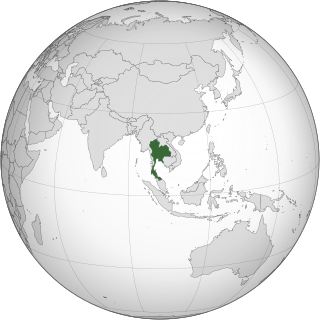
The rights of lesbian, gay, bisexual, and transgender (LGBTQ) people in Thailand are regarded as some of the most comprehensive of those in Asia. Both male and female same-sex sexual activity are legal, and the law legalizing same sex marriage is pending the royal assent. Thailand was the first Asian UN member state to pass a comprehensive same-sex marriage law, as well as the first in Southeast Asia and the 37th in the world. About eight percent of the Thai population, five million people, are thought to be in the LGBT demographic.
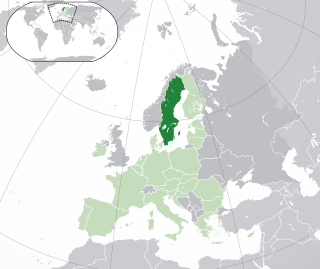
Lesbian, gay, bisexual, and transgender (LGBT) rights in Sweden are regarded as some of the most progressive in Europe and the world. Same-sex sexual activity was legalized in 1944 and the age of consent was equalized to that of heterosexual activity in 1972. Sweden also became the first country in the world to allow transgender people to change their legal gender post-sex reassignment surgery in 1972, whilst transvestism was declassified as an illness in 2009. Legislation allowing legal gender changes without hormone replacement therapy and sex reassignment surgery was passed in 2013.
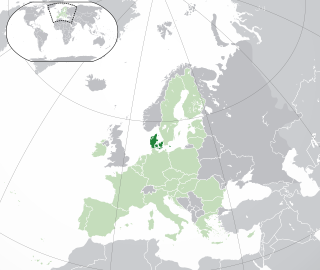
Danish lesbian, gay, bisexual, and transgender (LGBT) rights are some of the most extensive in the world. In 2023, ILGA-Europe ranked Denmark as the third most LGBT-supportive country in Europe. Polls consistently show that same-sex marriage support is nearly universal amongst the Danish population.

Lesbian, gay, bisexual, and transgender (LGBTQ) people in Japan have fewer legal protections than in most other developed countries, although some developments towards stronger rights have been made in the 2020s. Same-sex sexual activity was criminalised only briefly in Japan's history between 1872 and 1881, after which a localised version of the Napoleonic Penal Code was adopted with an equal age of consent. Same-sex couples and households headed by same-sex couples are ineligible for the legal protections available to opposite-sex couples, although since 2015 some cities and prefectures, covering over 60% of the population by 2023, offer "partnership certificates" to recognise the relationships of same-sex couples and provide some legal benefits. Japan is the only country in the G7 that does not legally recognize same-sex unions nationally in any form. In March 2021 and May 2023, the Sapporo and Nagoya District Courts ruled that not recognising same-sex marriage was a violation of the Constitution respectively. While in June 2022, the Osaka District Court ruled that not recognising same-sex marriage was not a violation of the Constitution, in November 2022, the Tokyo District Court ruled that the absence of same-sex marriage legislation was an unconstitutional state of affairs but did not violate the Constitution, though the court's ruling has no immediate legal effect. In June 2023, the Fukuoka District Court ruled that the ban on same-sex marriage was constitutional. A second ruling in September 2023 concluded that same-sex relationships should not be excluded from Japan's marriage system.

Lesbian, gay, bisexual and transgender (LGBT) individuals in the Republic of the Philippines have faced many difficulties in their homeland, such as prejudice, violence, abuse, assault, harassment and other forms of anti-LGBT rhetoric. Many LGBT Filipinos are met with mixed attitudes and reactions by their families, friends and others in their communities, as well as professionals, educators, their national public officials, politicians, attorneys and others working for the government and the rest of the general population.

Lesbian, gay, bisexual, and transgender (LGBTQ) rights in Latvia have expanded substantially in recent years, although LGBT people still face various challenges not experienced by non-LGBT residents. Both male and female types of same-sex sexual activity are legal in Latvia, but households headed by same-sex couples are ineligible for the same legal protections available to opposite-sex couples. Since May 2022, same-sex couples have been recognized as "family" by the Administrative District Court, which gives them some of the legal protections available to married (opposite-sex) couples; as of 2023 November, around 40 couples have been registered via this procedure. In November 2023 registered partnerships were codified into law. These partnerships are available to both same and different sex couples - since July 1, 2024 the implemented registered partnership law has the similar rights and obligations as married couples - with the exception of the title of marriage, and adoption or inheritance rights.
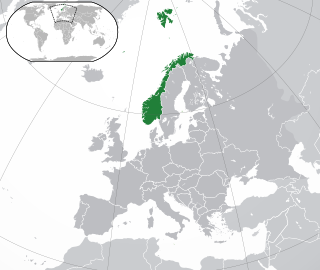
Lesbian, gay, bisexual, and transgender (LGBTQ) people in Norway have the same legal rights as non-LGBT people. In 1981, Norway became one of the first countries in the world to enact an anti-discrimination law explicitly including sexual orientation. Same-sex marriage, adoption, and assisted insemination treatments for lesbian couples have been legal since 2009. In 2016, Norway became the fourth country in Europe to pass a law allowing the change of legal sex for transgender people based on self-determination. On 1 January 2024, conversion therapy became legally banned within Norway.
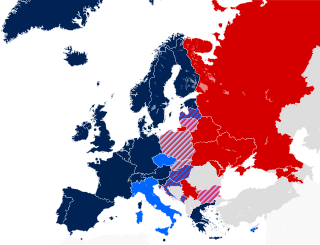
Lesbian, gay, bisexual, and transgender (LGBTQ) rights are widely diverse in Europe per country. 22 of the 38 countries that have legalised same-sex marriage worldwide are situated in Europe. A further 11 European countries have legalised civil unions or other forms of recognition for same-sex couples.
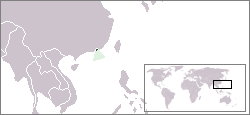
Lesbian, gay, bisexual, and transgender (LGBTQ) people in Hong Kong may face legal challenges not experienced by non-LGBT residents.

Lesbian, gay, bisexual, and transgender (LGBT) rights in Guam have improved significantly in recent years. Same-sex sexual activity has not been criminalized since 1978, and same-sex marriage has been allowed since June 2015. The U.S. territory now has discrimination protections in employment for both sexual orientation and gender identity. Additionally, federal law has provided for hate crime coverage since 2009. Gender changes are legal in Guam, provided the applicant has undergone sex reassignment surgery.
Estonian LGBT Association is the official representative of LGBT citizens in Estonia. Focusing mainly on informing the general public about LGBT people, sexual education and advancing LGBT rights. It was founded on 9 October 2008 in Tartu as the non-profit organization Eesti Gei Noored.

Indrek Saar is an Estonian actor and politician. He has been the leader of the Social Democratic Party from 2019 to 2022 and the Minister of Culture of Estonia from 2015 to 2019.
This is a list of notable events in the history of LGBT rights taking place in the year 2023.

Helve Särgava is an Estonian jurist, judge and politician.



